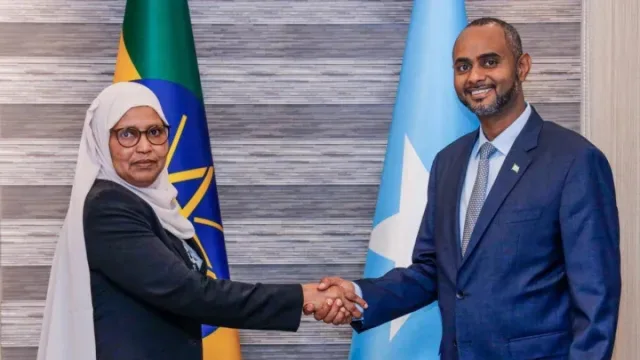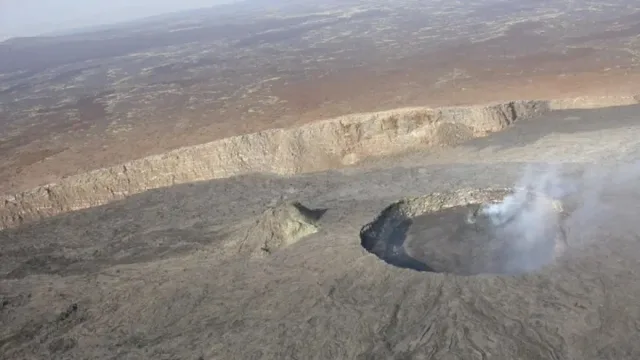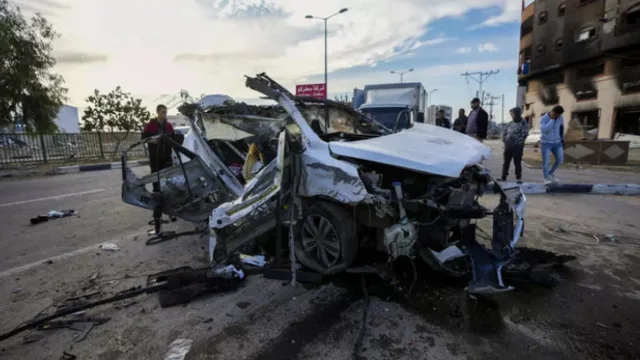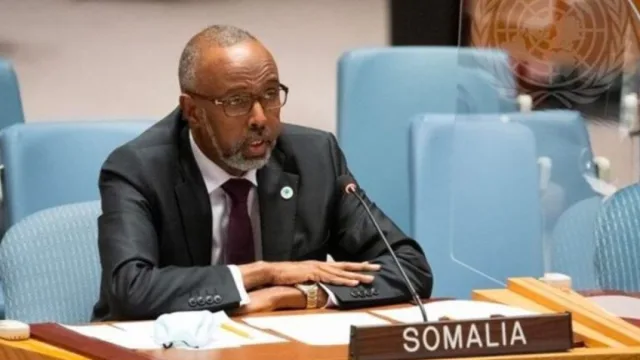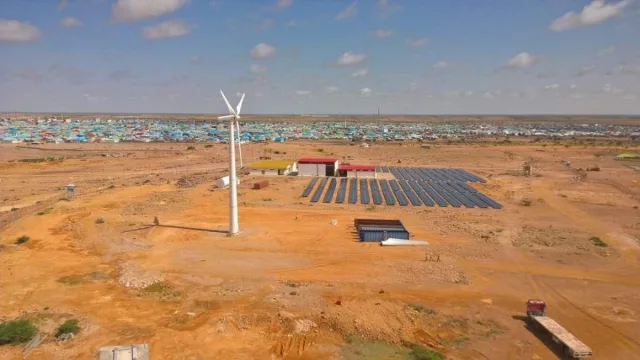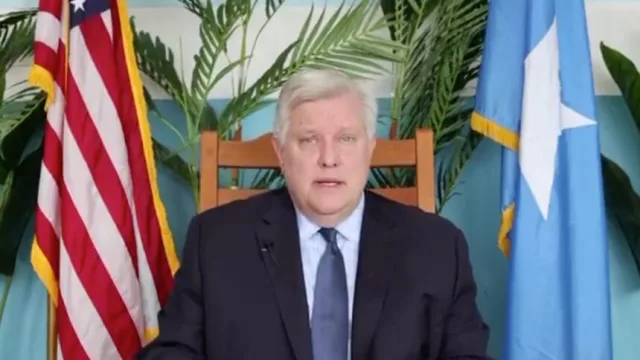President Deni had a better chance of success than all those other presidents because he was able to hold elections in all 33 districts simultaneously
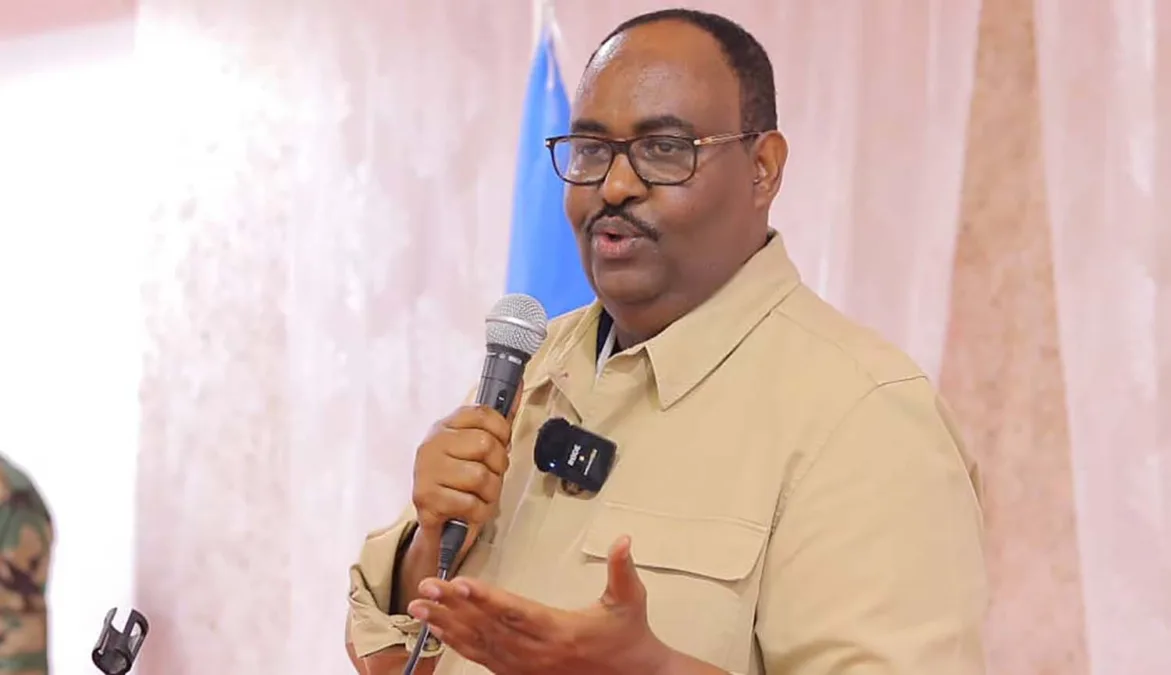
By: Mohamed Abdiqafar Haji Hussein.
President Said Abdulahi Deni spoke in Qardho city on Saturday, August 12, 2013, about the progress that the city has made since the election of the city council last year. At the end of his speech, the President took advantage of the opportunity to talk about the results of the elections for the 30 other district councils, which took place on May 25, 2023, and the upcoming presidential election, which will take place on January 8, 2024.
President Deni stated that he is ready to bring the government closer to the people. If they reelect him, he will serve them; if not, he will walk away. The President also urged the Mideye Party not to be afraid of the upcoming election, as they could win in the same way that they won against his party in the Qardho council election last year.
President Deni indeed spoke to the hearts of the people and told them what the Puntlanders wanted to hear. He told them that it was time for Puntland to move away from the old system in which traditional elders selected their representatives to the new system in which every Puntlander would be able to vote for whoever they wanted. President Deni added that this would mean that those elected would be accountable to the people.
President Deni also said that the process he was working on would lead to that system, even though those who were elected on May 25 have not yet been able to serve people because of disagreements between the parties.
However, before Puntland can move from the old system to the new system, two things must be in place. First, the new system should have a roadmap that will lead to all the positive things that the President described in his speech. Second, the roadmap should be agreed upon by all the stakeholders.
A New Set of Stakeholders
At the beginning of the democratization process, President Deni clearly stated that the new stakeholders of the new system were the nine associations, which will compete to become the final three parties as stated in the Puntland constitution. The President insisted that there was no room for traditional elders or any individual politician who was not a member of an existing association.
If that were the case, Puntlanders would expect President Deni to ensure that the process of reaching one person, one vote would be accepted by each association. If one association had any questions, then the President and his team would be expected to try to bring that association on board through negotiation and compromise, which would probably take time.
Learning from the Past
All the previous Puntland presidents who have tried to implement the new system stopped the process when they were unable to move forward, mainly because of disagreements about the process and because of a lack of time to resolve the issues within the president’s term. As a result, they had to revert to the old system under which they had been elected.
These presidents did not consider that the old system was so bad that they couldn’t return to it. Instead, they recognized that the system was generally accepted and that it was the system that they had been elected under. When the first disagreement arose about the process, between the Horseed and Youth associations on one side and the rest of the associations, the President and his team did not attempt to bring them on board through negotiations.
Instead, the President accused those two associations of not being serious about democratization. He said that they believed that it was now their turn to become the president through the old corrupt system, even though the system that President Deni now calls corrupt is the same system under which he was elected and which has served Puntland successfully for the last 25 years. The first mistake President Deni made was when he proceeded with the process without involving those two associations.
The second mistake that President Deni made, which all the previous presidents of Puntland avoided, was that when he realized that holding elections in three of the districts, which included the capital city, was impossible, he instructed the Temporary Puntland Election Commission (TPEC) to continue the elections in the other 30 districts.
Any reasonable president would postpone the elections until a solution has been found for those three districts. If the President is unable to resolve the issues preventing the elections in those three districts, then how can Puntlanders be confident that he can solve any other problems that may arise from such issue?
All the other presidents put the process on hold when they encountered such issues, realizing that the needs of Puntland are greater than their own individual desire. They also knew that the next elected president would pick up where they left off.
President Deni had a better chance of success than all those other presidents because he was able to hold elections in all 33 districts simultaneously, if he had given the process a bit more time. If he couldn’t continue to hold presidential election at that point, then at least he would have been known as the first president to hold council elections in all 33 districts of Puntland. Any president elected on January 8, 2024, whether it’s President Deni or someone else, would have been able to build upon that foundation.
However, President Deni adopted a “my way or highway” attitude. He instructed TPEC to continue the elections, possibly to demonstrate to the puntlanders that those opposing his election in those three districts cannot stop him.
Only 177,000 people voted in the election. The three parties that won the election were the same three associations that competed in the initial three trial districts. In those districts, President Deni’s association did not perform well because the other two associations cooperated with each other. To avoid repeating the same failure, President Deni then decided to change the constitution, increasing the number of associations that could become parties from three to nine.
The proposed number of parties included associations that did not participate in the May 25, 2023, election. During this introduction of this constitutional change, over 30 people died, and to this day, President Deni has not addressed the incident, identified those responsible, or offered condolences to the families of those who died in that conflict.
Now, the Mideye Party, the second largest party in the May 25, 2023, election, has issued a statement condemning the President’s remarks in the Qardho Meeting and called for President Deni to come to the negotiation table. Puntlanders now see the reality on the ground: President Deni does not even have the support of those he referred to as the new stakeholders. Most analysts are asking if three parties are currently oppose to his roadmap, and President Deni still continuing the one sided process, where does he lead to Puntlanders? The answer to that question is clear: dead end.
The way forward
The reality is that unless the next president is elected under a system acceptable to all stakeholders, the elected president will not enjoy another five-year mandate during which Puntlanders accept their presidency.
The solution is clear. The process needs to be agreed by everyone, and President Deni must stop dictating the process in a way that benefits only him. It’s time for President Deni to come to his senses and decide what legacy he wants to leave for Puntland. The only viable option is for the president to sit down with the opposition at the negotiation table and agree on a way forward.
If President Deni is elected again through an agreed process, he will have an opportunity to complete the program he has started; if not, whoever is elected can continue from where he left off. If that happens, President Deni will be remembered in history as the first president to hold city council elections, despite the many mistakes he has made. Otherwise, he will be remembered as a president who sought to remain in power by any means necessary.
Finally, Puntlanders should also scrutinize President Deni’s words to see if they align with his actions. Puntlanders should recognize that Puntland existed before President Deni and that it will continue after his tenure. It’s more important for all Puntlanders to work together in building a system under which elected officials are accountable, thus fostering progress in Puntland.
By: Mohamed Abdiqafar Haji Hussein
Email: mohabdhus@gmail.com
Atlanta, Georgia
